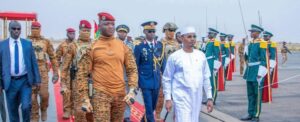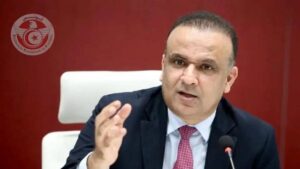AES Confederation: A shared horizon, for a transformative vision
Burkina Faso, Mali, and Niger have taken a decisive step towards forming a Confederation that unites the three states. At a meeting in Niamey on May 17, 2024, the foreign ministers of the three countries adopted the founding texts of this future entity. This significant progress marks the official birth of the Confederation of the States of the Alliance of Sahel States (AES), pending validation by the heads of state.
After the meeting, Malian Foreign Minister Abdoulaye Diop expressed his enthusiasm, stating, « We can very clearly consider that the Confederation of the States of the Alliance of Sahel States is born ». This statement followed a meeting with the President of the Transition of Niger, signaling a significant step towards formalizing this alliance. The ministerial meeting in Niamey, the fourth of its kind, adopted the necessary texts to create the AES Confederation, confirming the determination of the three countries to realize their common vision.
The AES Confederation is not merely a response to immediate challenges but also an ambitious project for Africa’s future. Ousmane Bamba, moderator of the « Kénédougou Forum », views this alliance as the starting point of a new African Union. He suggests that once the Confederation demonstrates its benefits, it could evolve into a stronger federation. He recommends that the founding treaty be binding to ensure the alliance’s effectiveness while remaining open to new members.
The Liptako Gourma Charter, adopted on September 16, 2023, has already laid the foundation for enhanced security cooperation. The three countries understand the need for synergy to address common challenges, particularly security, and now aim to extend this cooperation to other areas such as the economy and defense.
To ensure the success of this Confederation, it is crucial for member countries to finance their own projects. The failures of the G5 Sahel have shown the limits of excessive reliance on external funding. Professor Abdoul Karim Diamouténé emphasizes the importance of pooling resources and developing common policies, such as for the free movement of goods and people, learning from the obstacles faced within ECOWAS.
Energy is an area where significant progress can be made. Niger has already taken steps to supply fuel to other member countries, an initiative that could be extended to other investment sectors. The creation of an AES Development Bank is also being considered to support infrastructure projects and facilitate crucial economic decisions.
The Niamey meeting adopted texts for the political, economic, and social integration framework, including the Treaty establishing the AES Confederation and the Internal Regulations of the College of Heads of State. These documents are essential for the first session of the College of Heads of State, marking the final step before the official launch of the Confederation.
The success of this alliance will depend on several factors, including achieving sovereignty, comprehensive security, and developing policies tailored to member countries’ realities. Continuity of reforms and political leaders’ commitment will also be crucial in transforming this vision into reality.
Abdoulaye Diop emphasizes the importance of advancing quickly to finalize the necessary acts for the Confederation’s functioning. He also stresses the need to address challenges with rigor and commitment. The Confederation should not be seen as a temporary response but as a lasting solution to the people’s aspirations.
The Alliance of Sahel States represents a unique opportunity to redefine regional cooperation in West Africa. It symbolizes the hope for a better future, based on solidarity, resource pooling, and a shared vision of development.






